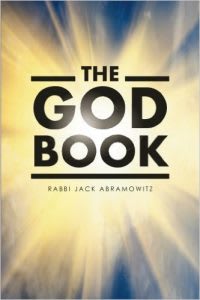4. Understanding the "Thirteen Attributes"
The articles in this series are based upon ideas expressed in the Rambam’s Moreh Nevuchim (The Guide for the Perplexed). Numbers in brackets represent the book and chapter of Moreh Nevuchim where these ideas are discussed.
If, as we have said, God has no attributes, then what are we to make of the familiar "thirteen attributes?" Really, these are descriptions of His actions which, as we have said, is actually the one valid way God might actually be described. [I, 54] In Exodus 33:13, Moshe asked God to let him know His attributes. The Creator responded in Exodus 34:6-7 with a list of His deeds, which we call the thirteen attributes. (See Talmud Rosh Hashana 17b.) Just as such terms as "seeing," "hearing" and "moving" are ascribed to God, we apply terms like "gracious," "merciful" and "compassionate" to Him in order to describe actions that would be considered gracious, merciful and compassionate when performed by a human being.
That is the nature of man: when we see an act of God, we attribute to it the motivation for such an action in a human. This is true not only of positive qualities like mercy, pity and generosity, but also for such things as anger, jealousy and vengeance. Of course, God possesses none of these human flaws but He acts towards sinners, idols and the enemies of Israel in a way that would be considered angry, jealous or vengeful when performed by a human.
At this point, the Rambam notes that all of God's "attributes" are what we would consider merciful characteristics except for one: revisiting the sins of the fathers upon the children who perpetuate them. He further points out that the phrase "v'nakeh lo y'nakeh" does not mean, as some think, that God will not acquit the guilty. Rather, it means "He will not utterly destroy," and is therefore an expression of mercy. The Rambam continues by demonstrating that the concept of revisiting sin on future generations is limited to the sin of idolatry, as only idolators are referred to as "enemies of God." (Refer to the text in Moreh Nevuchim for more information.)
The question remains why the Torah delineates certain things as God's "attributes" when, in truth, He has no such characteristics. The answer is that these are the traits a person should strive to emulate, as the Talmud tells us, "Just as He is gracious and merciful, so shall you be gracious and merciful" (Shabbos 133b). Vengeance and jealousy are just as rightly or wrongly considered "attributes" of God, but these are not the characteristics He wishes us to cultivate.
Similarly, only certain descriptors of God are used in prayer. [I, 59] The Talmud (Megillah 25a) tells us of a man who ad-libbed a string of praises in Shemoneh Esrei, calling God great, mighty, awesome, powerful, strong, etc. The sage Rabbi Chaninah chastised him by asking, "Have you finished all the praises of your Master?" He explained that trying to praise God is like praising a multi-billionaire for donating a hundred dollars, or praising a Ph.D. for having his high school diploma. (Obviously, these are my examples and not Rabbi Chaninah's.) It's damning with faint praise. These would be praiseworthy accomplishments to some but not for those particular individuals. Along these same lines, what would be a source of pride for a person falls short of praise when applied to God. As Rabbi Chaninah explained, we only say particular forms of praise that were given to us in the Torah, and which were then instituted in Shemoneh Esrei by the Anshei Knesses HaGedolah (Men of the Great Assembly), some of whom were prophets. Had the Torah not given us these praises - or had the Anshei Knesses HaGedolah not instituted them - we would not dare presume to apply them to God.

